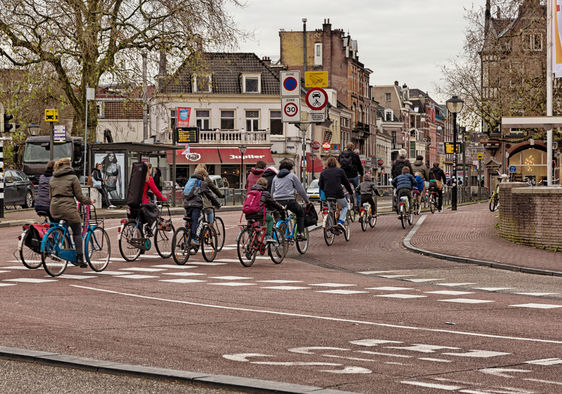The public’s views are wanted by Oxfordshire County Council on the potential implementation of an Experimental Traffic Regulation Order to trial two-way cycling in Sheep Street.
Currently, cycling is prohibited at all times on Sheep Street.
The trial would take place in the section of Sheep Street that currently exists as a pedestrian zone, from Market Square to Bell Lane.
The order, if enforced, would trial cycling for up to 18 months and would allow cyclists to use the street at all times of the day.
The consultation, which closes on August 31, is focused on gauging the public’s opinion on whether the order should be implemented and on gathering their views on any potential consequences of allowing cycling.
The proposed change aims to enhance active travel across Bicester by incorporating Sheep Street into the town’s cycling network.
The council says the proposals would “provide significant benefits for cyclists by improving the choice of routes across Bicester, including for students who cycle or wish to cycle to school”.
It added: “We believe that allowing cycling in Sheep Street will improve access for all cyclists including those who have disabilities, enabling them to cycle more.”
The change is expected to attract more visitors to the town’s businesses, market days and festivals, in turn boosting the economy.
The council said its aim is to decrease the public’s reliance on private cars for short journeys by increasing the number of cycling routes and promoting a more sustainable mode of transport.
By participating in the ongoing survey, residents can have their perspectives, concerns and hopes in relation to the proposed change heard and accounted for.
These responses will assist authorities in weighing the feasibility and desirability of the proposals, taking into account factors such as safety, convenience and overall impact on community life.
The survey should take approximately five minutes to complete.
Following the consultation, council officers will prepare a report for the cabinet member for transport management, who will make a final decision on whether to go ahead with the trial.
If approved, a new public consultation will be organised for the first six months of the trial.
The responses to this second consultation will also be reported to the cabinet member for transport management.
They will decide if cycling should be made permanent. This could include cycling at all times, or cycling only at specific times; or it may be decided that cycling should not be permitted.

